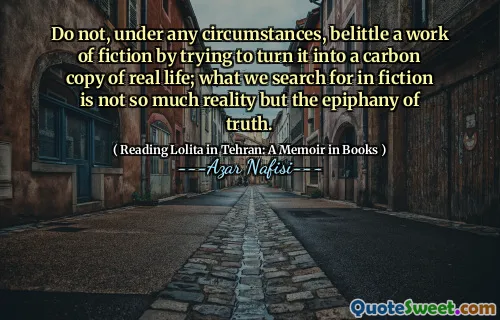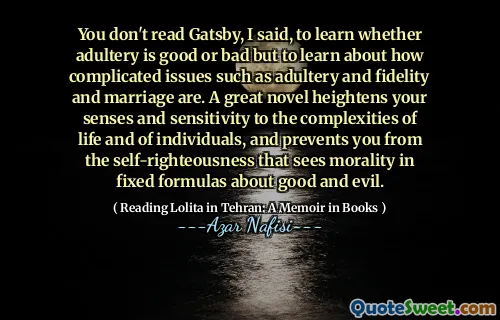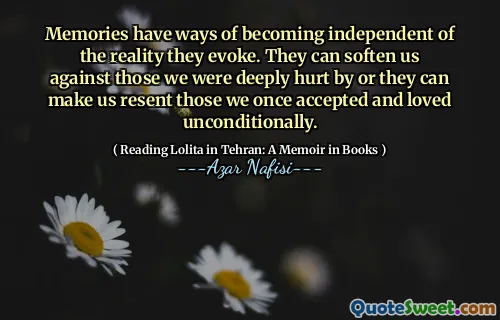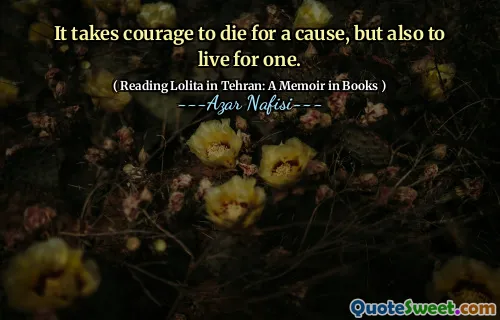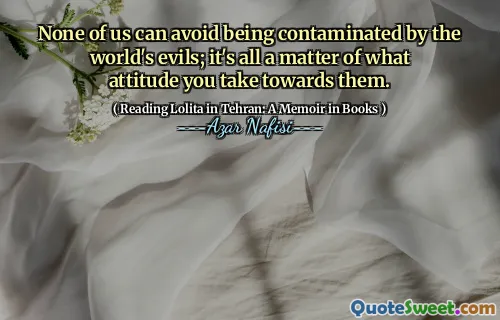
I went on and on, and as I continued, I became more righteous in my indignation. It was the sort of anger one gets high on, the kind one takes home to show off to family and friends.
📖 Azar Nafisi
In "Reading Lolita in Tehran," Azar Nafisi recounts her experiences as a literature professor in Iran under oppressive circumstances. As she delves into discussions about literature, she encounters a deep sense of indignation that fuels her longing for intellectual freedom. This anger, rather than being merely destructive, becomes a source of strength and motivation for her to resist the censorship and restrictions imposed on her and her students.
Nafisi illustrates how this righteous indignation transforms into a kind of emotional high, allowing her to channel her frustrations into passionate discussions about the world of literature. The fervor she feels becomes a badge of honor, something she wants to share with her loved ones, highlighting the importance of literature as not just a form of resistance, but also a means to connect with others in profound ways.

